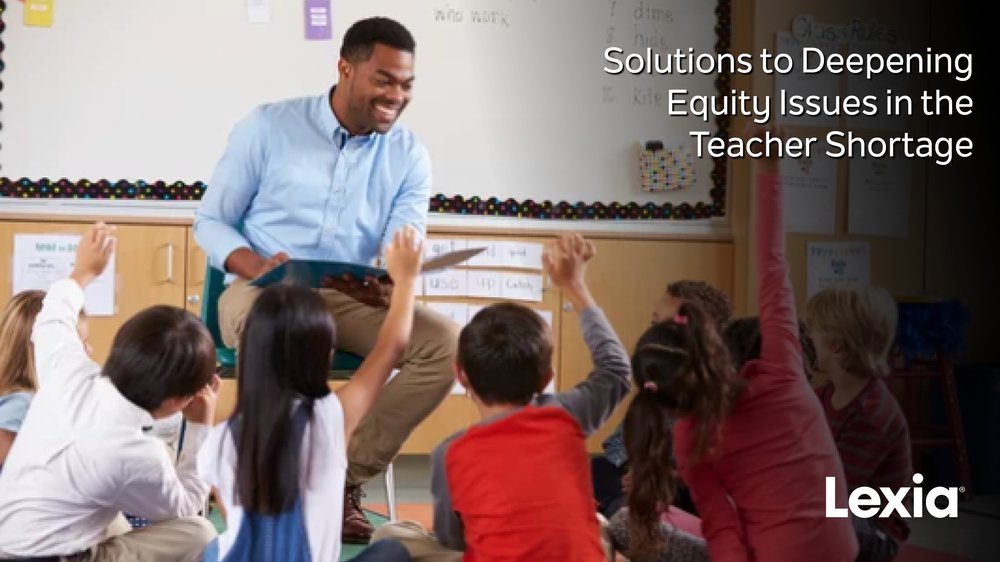A special Learning Leadership Topical Event, presented by LeiLani Cauthen, CEO at Learning Counsel News Media and Research
With special guests, Jose A. Viana, Ed.D., Senior Education Advisor at Lexia Learning and Wendee Evering, Assistant Administrator at A.C. Moore Elementary in Columbia, SC
Jose A. Viana, Ed.D., Senior Education Advisor at Lexia describes Lexia Learning as being all about literacy. “We have two programs and a professional development that's focused on literacy and the science of reading,” said Dr. Viana. “But recently we have developed a program that specifically focuses on the needs of our English learners, our multilingual learners, our emergent bilingual students. It's an adaptive blended learning program, so the teacher is at the center of the program. It's not just the kids sitting and clicking, it supports students’ English language development, and it does so through academic conversations. So, content focus, whether it's science, math or social studies, the focus is on speaking, listening, and grammar. Although we are a literacy company, this is not a program where we adjusted a literacy program to make it fit the needs of emerging bilingual students.
“We built it from the ground up and focused on speaking, listening, and grammar. And what I find really special about the program is the students get to interact with 17 individual characters. So, the program is very culturally responsive. These characters come from all different backgrounds, and 13 different languages are represented. And when you speak to the characters, you can even pick up on where they're from, because they'll speak with a slight accent. The whole idea is for the students to see themselves mirrored in these other students that look and sound like them and have experiences like they do. What's really cool is that not only are they having conversations that are content specific and academic, but you get to know a little bit about the characters as well. This character is Juan, for example. You can see he has a pod on his belt because he has Type-One diabetes. So, he talks a little bit about that. He also talks about his family that originated from Mexico. He was born here though. So you see, it includes a lot of little tidbits that students can relate and connect to.”
According to Wendee Evering, Assistant Administrator at A.C. Moore Elementary, “I have had experience with the teachers at my school where we were challenged to find time to develop lessons and experiences that are culturally responsive or relevant. Fortunately, Lexia has provided the opportunity for the students to receive that immediate feedback. We love the reports that we're able to print. The teachers can use those reports to provide information to our MTSS team, our team that provides support to students who are having learning difficulties. They're also able to partner with the parents to support the students. We have found that online, this program to be very helpful and effective within our elementary school.”
“The idea is, as students are having these conversations with characters like Juan, they feel like they're in a safe environment and can talk freely,” said Dr. Viana. “Because again, they're talking to someone that looks like them and sounds like them. And the students using this program are engaged, because they're actually speaking 70 percent of the time. I know when I was teaching ESOL many years ago, it was very hard to provide opportunities to have conversations, and that is really what our students need the most in order to acquire English as their second language. And then the character Juan (or any character that is engaged) would provide corrective feedback live with the student. So, if the student struggles a little bit answering a question, The character would be able to correct them and help them and give them explicit instruction on their errors.”
One of the features that schools really enjoy is that the program is aligned with proficiency standards from across the nation. So, whether it's New York ESL, California ELD, WEDA or others, Lexia built the program using the language proficiency standards as a foundation. The analytics are impressive, and districts don’t have to wait for end of year testing to see how the students have progressed.
According to LeiLani Cauthen, CEO at Learning Counsel News Media and Research, “We do have a lot of emerging bilinguals in America. It was four years ago that Salt Lake City, Utah district told me they serve as many as 187 languages. This is real and it is happening across America. Our ability to respond requires that we have tools like this, where you've built in the nuances of language, the way a student should be receiving the initial instruction so they can bridge over and actually understand their peers and be interested in what's happening in the lessons around them.
“As a software developer looking at what the developers went through to produce the analytics, that's not a simple task and the time savings for the individual teachers are huge. So that's one of the levels of the deepening equity issue. I want to get into more.”
This is an exciting discussion you won’t want to miss, and Cauthen, Evering and Viana really get to the heart of the matter, including exclusive research from the Learning Counsel on the coming teacher shortage and how technology like the program from Lexia is essential to do more of the heavy lifting for teachers, allowing them to engage and teach their students on a much more human level. The bottom line is that for equity to be achieved, all learners must be engaged at their own level, and allowed participation in finding their own personal course. When everyone is learning, happily challenging the limits of what is possible, it is a beautiful thing.











